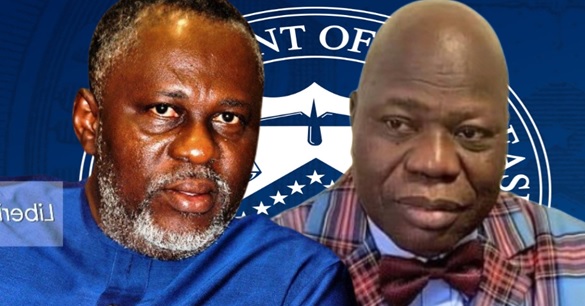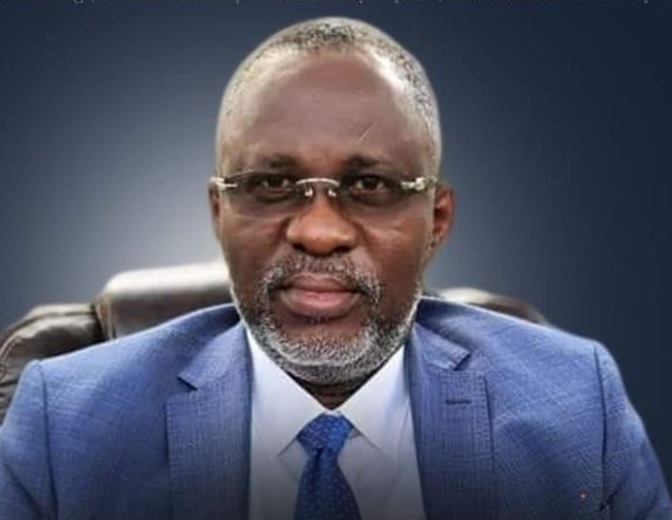MONROVIA – In a move that has sent reactions through Liberia’s political and legal landscape, former Solicitor General Cllr. Cyrenius Cephus, who is under U.S. sanctions, appeared today, Wednesday, August 21, 2024, at the Liberia Anti-Corruption Commission (LACC) to represent another U.S.-sanctioned individual, former Minister of State for Presidential Affairs Nathaniel McGill. McGill, now serving as the Senator of Margibi County, was summoned on August 16, 2024, by the LACC to provide critical information in an ongoing investigation into allegations of payroll padding and corruption during his tenure at the Ministry of State for Presidential Affairs under the previous administration of former President George Weah.
The investigation centers on a Supplementary Payroll that was reportedly created under McGill’s leadership, listing 728 names allegedly added outside the standard procedures of the Civil Service Agency (CSA). This development has raised serious concerns about administrative malpractice and corruption, casting a further shadow over the integrity of Liberia’s public institutions.
The U.S. Department of the Treasury’s Office of Foreign Assets Control (OFAC) had sanctioned McGill, Cephus, and another Liberian official, Bill Twehway, in August 2022, citing their involvement in significant public corruption. These sanctions, enacted under Executive Order (E.O.) 13818, are part of the Global Magnitsky Human Rights Accountability Act, which targets individuals involved in serious human rights abuses and corruption globally.
The decision of Senator McGill to retain Cllr. Cephus as his legal representative has sparked widespread criticism and bewilderment among political analysts and legal experts. The optics of two U.S.-sanctioned individuals, both accused of serious corruption, aligning in a high-profile legal battle has intensified the scrutiny on Liberia’s justice system and the government’s commitment to fighting corruption.
Anderson D. Miamen, Executive Director of the Center for Transparency and Accountability in Liberia (CENTAL), openly criticized this development. In a social media post, he remarked, “A Sanctioned Lawyer (Cyrenius Cephus) Representing a Sanctioned Client (Nathaniel McGill) at LACC. Liberia is really giving God a hard time.” Miamen’s statement encapsulates the frustration and disillusionment felt by many Liberians, who view this situation as a stark example of the entrenched impunity and the challenges facing the country’s fight against corruption.
Corruption has long been a blight on Liberia’s democracy and economy, siphoning away funds meant for public services, empowering illicit actors, and eroding public trust in government institutions. The ongoing investigation into McGill’s tenure is yet another chapter in Liberia’s complex and troubled history with corruption. As the LACC continues its probe, the outcome will likely have significant implications for governance, the rule of law, and public perception in Liberia.
The representation of McGill by Cephus, both of whom are emblematic of the corruption that has plagued Liberia, underlines the deep-seated challenges the country faces in addressing corruption and restoring public confidence in its institutions. As the case unfolds, all eyes will be on the LACC and the broader justice system to see whether justice will prevail or if this will be yet another instance of the powerful escaping accountability.







